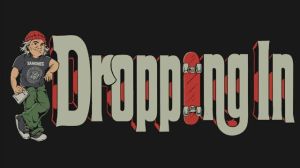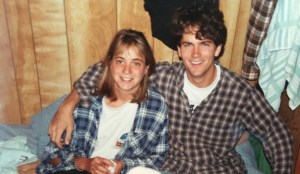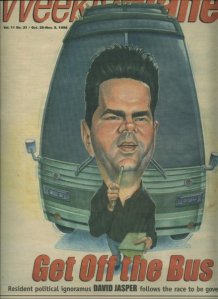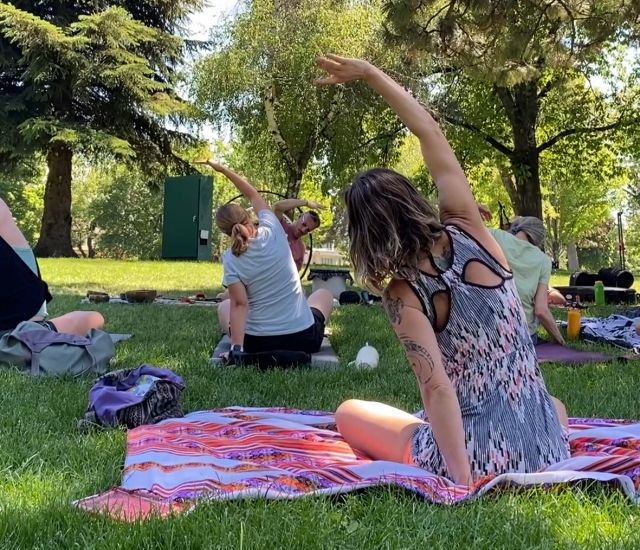Dropping In: The gift of crummy first jobs — learning what you don’t want to do
Published 12:30 pm Wednesday, May 28, 2025

- This is not the columnist at his first job. He never bothered to wear gloves. (123rf)
Somehow, because of the way the stars aligned, all three of my daughters are graduating from college in a few weeks with their bachelors degrees in the humanities, one from University of Oregon in Eugene, and two from Portland State University in (checks notes) Portland.
Despite the prevailing educational ethos, they didn’t study STEM subjects. They don’t have immediate plans for graduate school, either, which means they’re going to have jobs, not careers, at first.

They already have part-time jobs, but presumably and hopefully they will be working full-time in the months ahead. One was telling her mom and me how much she dislikes her current job but feels she’s painted herself in a corner, experience-wise.
To her and her sisters, and any other young people worrying about what they are going to do, what they qualify for because of what they did or didn’t study, or what kinds of jobs you can get at your age, all I can say is do what you must, and don’t worry too much.
I know there are exceptions, those who know what they want to do and get after it. But in my and a lot of other people’s experience, the jobs you get in your early or mid 20s don’t directly correlate to what you’ll be doing a decade or three later. The jobs many of us had in those years are what pointed the way forward, or at least helped us figure out what we didn’t want to do.
From age 19 to 21, while I was in community college, I worked for Herrington’s Home Services, a maid service run by a mother and daughter who taught me, and a succession of the friends I helped get jobs there, how to clean. One time a woman whose home we were cleaning said to me, “You’re going to make a great husband someday.”
Not sure that prediction panned out, but I do know how to make a bed and operate a vacuum cleaner. I wasn’t so proud of myself back then. In fact, when I told my girlfriend of the time how lowly I felt cleaning other people’s toilets, she scolded me: “It’s a job. You are not your job.”
It was another cleaning job, after college, where I met my future wife, Catherine. We were seasonal rooms workers — that was our title — cleaning hotel rooms outside of Denali National Park in Alaska. We were on the same team and had the same days off. Here again, I was not my job, but the job did change my life.

The columnist and his then-girlfriend Catherine summer 1993, when they met working in Alaska. (Mark Deeny)
At 26, I started putting that BA in psychology to work getting jobs such as my work as a residential case aide at a group home in Illinois, while Catherine finished her studies at University of Illinois. It was always interesting, low-paying work with middle-aged, schizophrenic residents.
From my latter college years through my mid-20s, I harbored hopes of getting a job writing in some capacity. That led to my next job, and the last that I pursued on the back of my psych degree, as a counselor at a teen detox facility in Tampa, where Catherine and I moved after she graduated so I could pursue a second bachelors degree in journalism. I took classes at University of South Florida in the mornings, and in the evenings, from 3 to 11 p.m., I worked a very stressful job.
Of the many anecdotes I could tell you, here’s one: One evening, a kid in his laceless hi-tops, took a running leap at one of the magnetically locked doors at the end of a hallway. We were told they could withstand thousands of pounds of pressure, info that was also told to kids to deter them from trying to escape. He kicked it right open. I was the nearest adult, and it was my job to calm and try to keep control of the other kids, rather than pursue him. When he was picked up by the police and brought back the next day, he told me he hadn’t been trying to escape, and hadn’t thought the kick would work. He only ran because it had.
One night, the kids threatened to “buck,” which was their term for riot, and things got very tense, and eventually I got to leave after the next shift came on and the numbers of staff to kids were better balanced. I knew I had no business counseling anyone and called the next morning. My supervisor, working a double because the place was in chaos, answered the phone and recognized my voice.
“Oh no. Don’t tell me you’re going to quit,” she said when I identified myself.
“Oh, I’m not going to. I do quit,” I said. It was March 19, 1995, which I know only because it was the same day Michael Jordan returned to the NBA after his stint playing baseball. I felt like he and I were both back on the right track.

Portrait, well, caricature, of the budding journalist shortly after he was promoted to staff writer.
That summer, I got a job proofreading study materials for the CPA exam at a business called Totaltape Publishing. I had no idea what “amortization” meant — still don’t, to be honest — but there I was, with my foot in the publishing door.
In September, I started interning at The Weekly Planet, Tampa Bay’s alt-weekly. The newsroom is etched in memory, its smells and sights — cluttered desks and shelves stacked with newspapers, promo CDs, books and other promo materials. It was a world I wanted into, and I worked diligently for no pay, filing photos and doing data entry. It led to a part-time job by October, and full-time one in early 1996, right after I turned 28.
I could keep going with the CV, but you get the idea: Throughout most of my 20s, I kicked at a lot of doors.
Eventually, the right one opened, and I kept on running.
◼ Reporter: 541-383-0349, David.Jasper@bendbulletin.com









